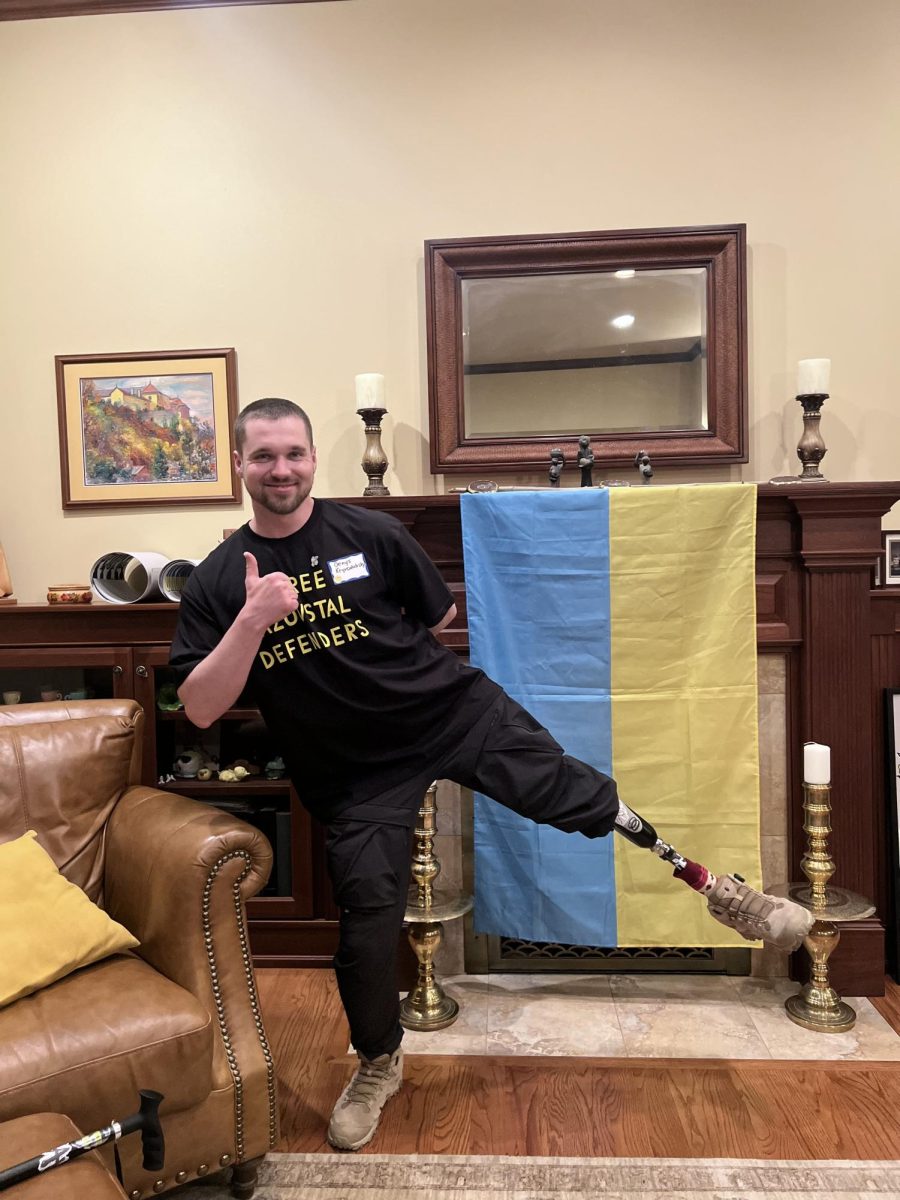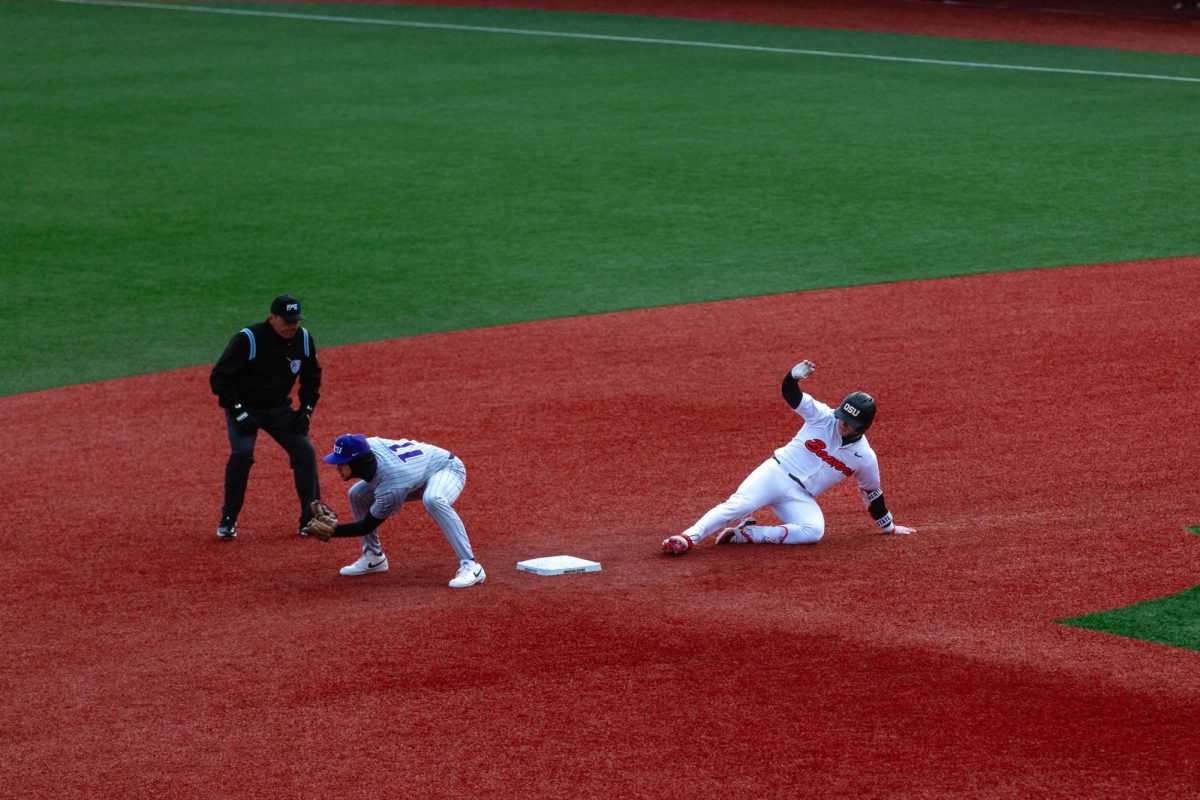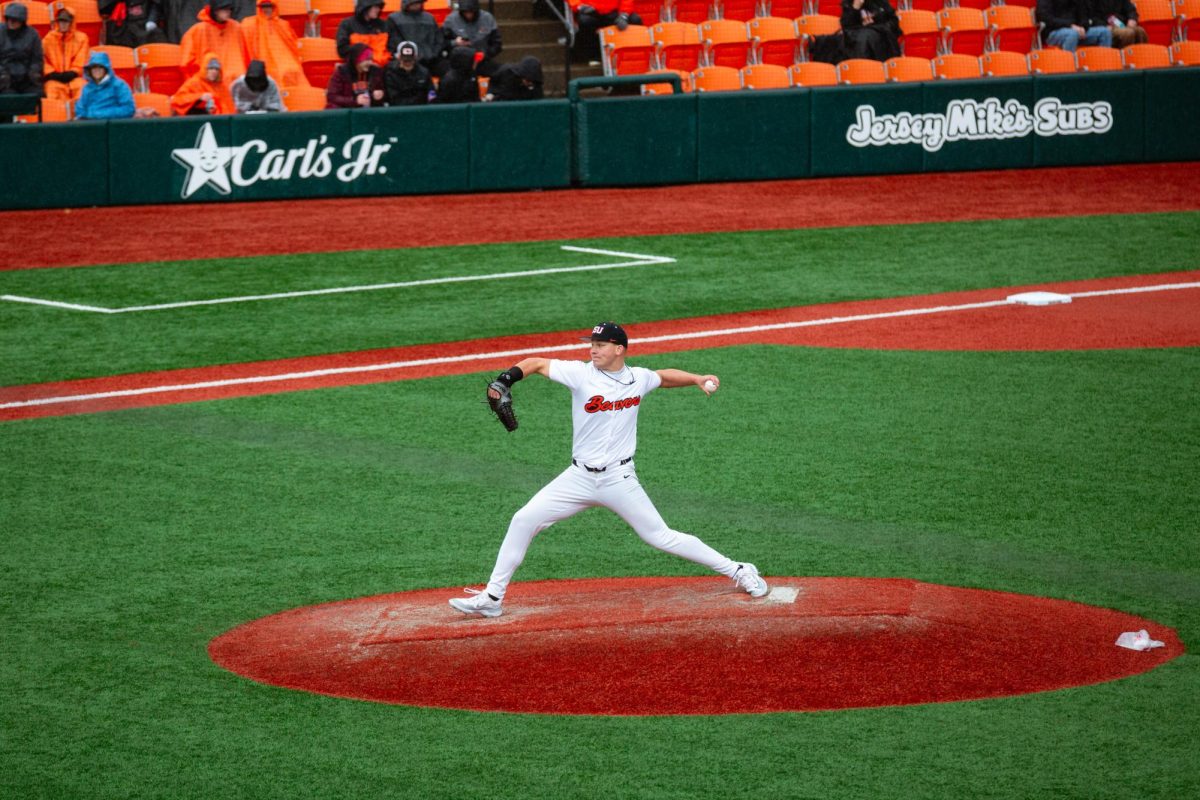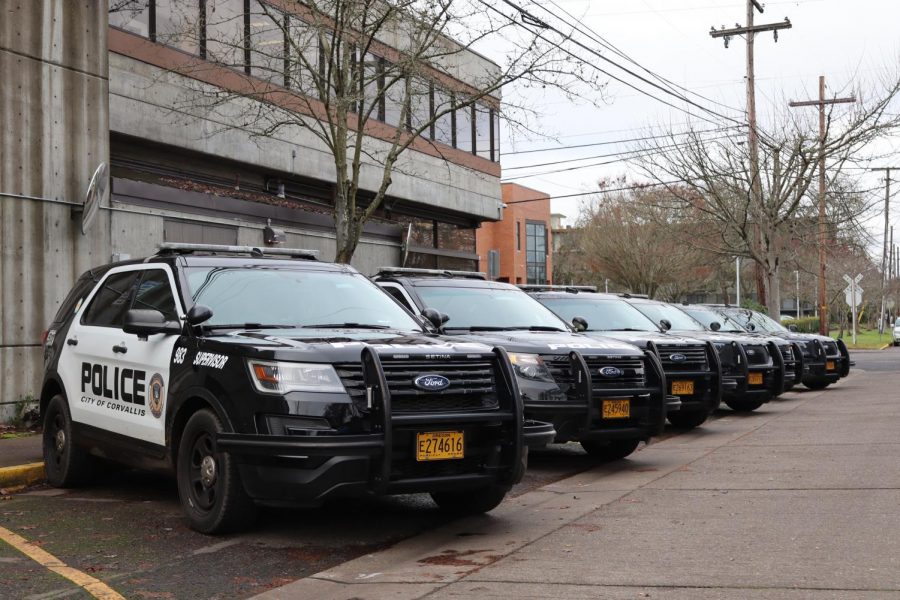Corvallis Police Department changes operations as per COVID-19 limitations
January 4, 2021
While the Corvallis community has continuously adjusted daily operations to fit Gov. Kate Brown’s orders, the Corvallis Police Department has also needed to make changes in how it operates in the city during the pandemic.
As public health guidelines have stressed the importance of mask-wearing and social distancing, parties — a breeding ground for COVID-19 cases — have had to be dismantled after the onslaught of the medical pandemic.
According to Police Chief Nick Hurley, many of the complaints regarding parties typically stem from the loud noise or unlawful amplification of sound coming from stereos.
“As with many other violations of the law, officers respond to these complaints with an eye towards education and voluntary compliance,” Hurley said via email. “Additionally, programs such as the Special Response Notice (SRN) and the Chronic Nuisance Property (CNP) help ensure the residents and guests understand the importance of being good neighbors and responsible community members.”
SRN and CNP are programs that were created as a way of increasing accountability surrounding crimes and violations that detract from the livability in the community, specifically surrounding the campus area of Oregon State University.
SRN, specifically, puts the residents on notice that subsequent violations of the same law could result in civil penalties being brought against the residents.
“Civil penalties associated with these programs are not punitive in nature,” Lieutenant Ryan Eaton explained via email. “But are rather the seeking of reimbursements for funds expended in responding to the repeat violation.”
Funds expended typically go towards reimbursements of staff, such as for officer time and dispatcher time.
Meanwhile, the CNP program is similar to the SRN program. However, the program instead engages the actual property owner — rather than renters — in creating a solution to the repeating violations of the law occurring at a property they own.
Created before the COVID-19 pandemic, these programs have not had updates as of yet.
Since Sept. 1, Hurley stated that the CPD has needed to respond to four complaints at fraternities regarding noise, only one rising to the level of an SRN for an unlawful amplified sound which was due to a loud stereo.
The officer made no other observations to indicate there was a party occurring, and there have been no reported calls regarding parties at sororities.
“In the instances where we do not receive voluntary compliance and education is not an effective deterrent, officers will issue citations for appropriate violations of the law,” Hurley said. “These citations are commonly for violation of the Loud Noise and Unlawful Amplified Sound ordinances in the Corvallis Municipal Code.”
When dealing with combative individuals, Hurley stated that CPD officers make every attempt to deescalate situations and to minimize the need to respond with force. However, regardless of best efforts, situations may arise where officers must engage with physical control techniques.
“The immediate danger outweighs the potential hazards and therefore takes precedent,” he said. “That being said, our staff are trained in COVID-19 mitigation procedures, are provided (and required to wear) effective face coverings, and follow Oregon Health Authority guidelines as closely as their assigned job duties will allow.”
Although the CPD had already been utilizing distance learning and virtual platforms for training before the pandemic, the department has been able to direct more of the training with the onset of COVID-19 to maintain state-required certifications.
In regards to training where there are no reasonable substitutes — firearms, emergency vehicle operations — CPD staff has continued to train but in limited group sizes while practicing social distancing and utilizing face coverings.
According to Benton County Public Information Officer Alyssa Rash, police interactions are not a major source of spread for COVID-19 according to Oregon data. On the other hand, however, law enforcement officers may be at a higher risk of exposure to COVID-19 due to the decreased possibility of social distancing while performing arrests.
“In Oregon, police are expected to wear face coverings to the greatest extent possible, and provide face coverings to those who enter their custody,” she said via email.
Aside from operations, there have also been changes in how the department interacts with the public.
In-person community outreach events such as Coffee with a Cop, Shop with a Cop and National Night Out have not been able to take place. The CPD lobby has also been closed to the public and many of the calls received are not handled in-person.
“While these changes are necessary to ensure the safety of the public and our staff, we are still disappointed to see a reduction in our ability to engage with the community in a more personal way,” said Hurley. “In regards to the most recent two-week freeze, our operations have not seen any changes from what we already have been experiencing.”



















































































![Newspaper clipping from February 25, 1970 in the Daily Barometer showing an article written by Bob Allen, past Barometer Editor. This article was written to spotlight both the student body’s lack of participation with student government at the time in conjunction with their class representatives response. [It’s important to note ASOSU was not structured identically to today’s standards, likely having a president on behalf of each class work together as one entity as opposed to one president representing all classes.]](https://dailybaro.orangemedianetwork.com/wp-content/uploads/2025/03/Screenshot-2025-03-12-1.00.42-PM-e1741811160853.png)























